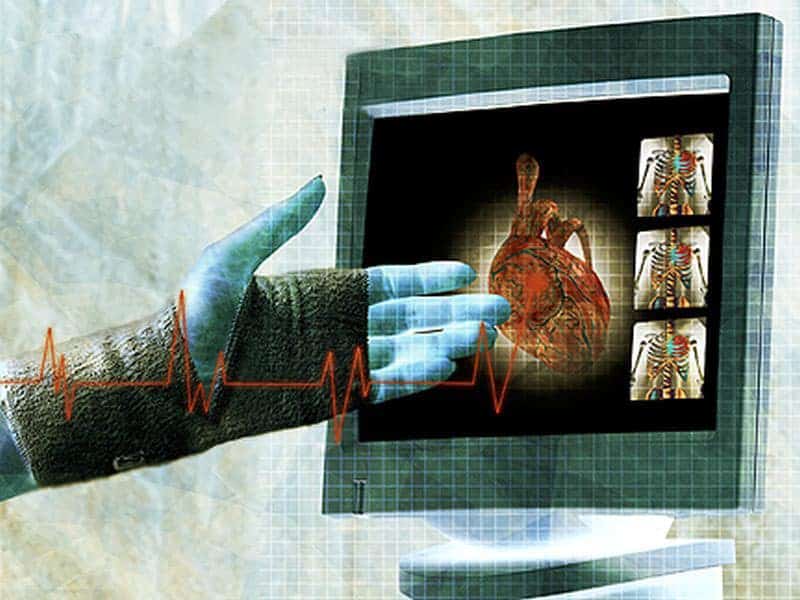TUESDAY, Aug. 6, 2019 (HealthDay News) — Incorporating focused cardiac ultrasonography (FoCUS) into clinical examination has greater sensitivity, but not greater specificity, than clinical assessment alone for identifying left ventricular dysfunction and aortic or mitral valve disease, according to a review published Aug. 6 in the Annals of Internal Medicine.
Jeffrey A. Marbach, M.B.B.S., from University of Ottawa in Ontario, Canada, and colleagues conducted a systematic literature review to identify studies evaluating the accuracy of FoCUS-assisted clinical assessment versus clinical assessment alone for diagnosing left ventricular dysfunction or valvular disease in adults undergoing cardiovascular assessment.
Based on the nine identified studies, the sensitivity of clinical assessment for diagnosing left ventricular dysfunction (left ventricular ejection fraction <50 percent) was 43 percent, while the sensitivity of FoCUS-assisted examination was 84 percent. The corresponding specificities were 81 and 89 percent, respectively. For diagnosing aortic or mitral valve disease (of at least moderate severity), the sensitivities of clinical assessment and FoCUS-assisted examination were 46 and 71 percent, respectively, while the specificity was 94 percent for both.
“FoCUS-assisted examination may help rule out cardiovascular pathology in some patients, but it may not be sufficient for definitive confirmation of cardiovascular disease suspected on physical examination,” the authors write.
Abstract/Full Text (subscription or payment may be required)
Editorial (subscription or payment may be required)
Copyright © 2019 HealthDay. All rights reserved.



